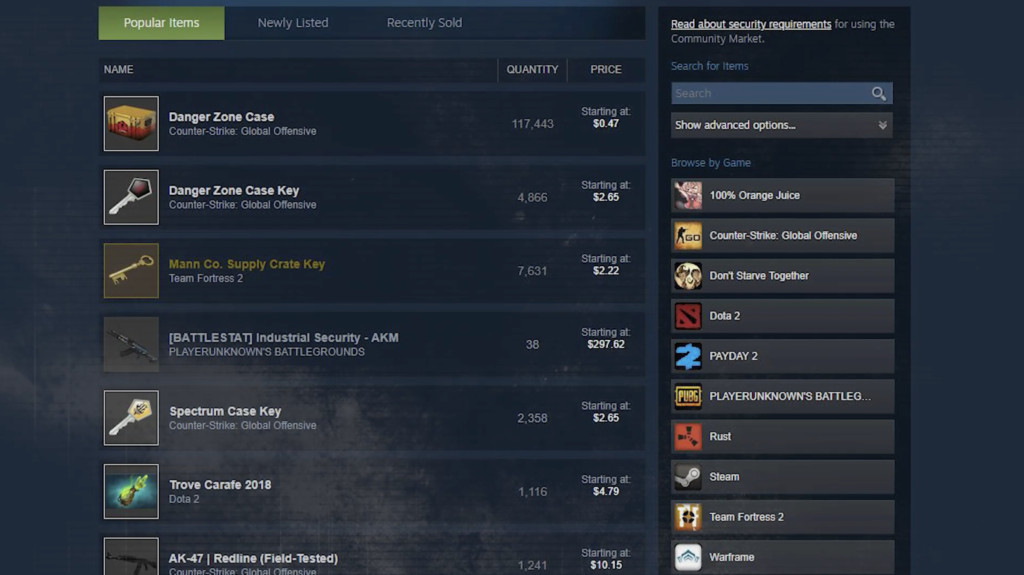
Loot Box Addiction: Dangers of Loot Boxes
Loot boxes are blurring the lines between gaming and gambling. In this article, you will learn what loot boxes are, the hidden dangers of loot boxes, and stories from people with loot box addiction.
Loot boxes first appeared in games in the early 2010s. Today they are featured in most games, particularly free-to-play games, as a means of monetization.
Most games use loot boxes to sell cosmetic items only, but some developers use loot boxes to give players that pay for them an advantage over other players – creating a so-called “pay-to-win” scenario.
But what exactly are loot boxes, how are they designed, and why are they dangerous for gamers?
What are Loot Boxes?
Loot boxes are virtual goods that contain items and rewards for players to enjoy. These items can be cosmetic items, which improve the player’s character or give a player an advantage to win.
Players can either buy loot boxes with virtual currency (purchased using real money) or earn loot boxes through gameplay. This mechanic encourages players to play more often and for longer periods because the more they play, the more they can get. Alternatively, if time is limited, they can spend money to bypass in-game time requirements.
Sometimes items inside these loot box chests are locked and need to be unlocked with a key, as with Counter-Strike: Global Offensive. A key is purchased with real money to open a loot box earned through gameplay.
Items within loot boxes come in different rarity levels, from basic items to rare and even legendary ones. The more rare an item, the more money you may need to spend to win the item, or the expensive it may be to purchase on third-party marketplaces. Rare items can often be sold for thousands of dollars.

Some games allow you to sell or even bet items you’ve earned or purchased on third-party marketplaces for real money, leading to a toxic culture of gambling inside games that offer loot boxes through skins gambling and esports betting. Some countries, such as the UK, have called for loot boxes to be classified as gambling, which could, hopefully, help solve the problem.
Loot Box Prevalence
Loot boxes started appearing in games in the late 2000s, mostly in games that were free to play as a monetization strategy.
However, the inclusion of loot boxes elevated to a whole new level with Star Wars: Battlefront, a game developed by Electronic Arts.
Star Wars: Battlefront cost the full price for a triple-A game, yet it still included loot boxes that gave some players an advantage over other players. Of course, players soon rebelled against the game and the developer, forcing them to drop loot boxes a few years later.
This is just one of the instances where loot boxes are causing controversy. Of course, EA is at the forefront of this phenomenon, but nowadays, almost any game that comes out follows a similar strategy.
Loot boxes are present in the vast majority of modern games, including:
- 58% of all video games on the Google Play store
- 59% of top iPhone games
- 36% of games on the Steam store
- 1% of Android games aged 12+
- 9% of iPhone games aged 12+.
Furthermore, loot boxes are in 93% of all games rated 12+, and 40% of all gamers have opened loot boxes in their gaming history at least once. These statistics show the extent of loot boxes in video games and their risk for young people vulnerable to gambling problems.
12 out of 13 studies conducted on gaming and gambling regarding loot boxes show a tangible link between the two. These studies also show that loot boxes act as a “psychological nudge” that encourages people to buy more boxes and gamble in real life.
Loot Boxes are Designed to be Addictive
The prizes that come from loot boxes are random. In this regard, they are similar to slot machines and other gambling products because players risk money for a chance of getting a reward.
Loot boxes affect your brain similar to how slot machines do (Whyte, 2019):
- Prizes are distributed randomly
- Values of prizes are variable
- Similar audio and visual cues
- Provide uncertainty which keeps players going.
Loot boxes appeal to individuals who are psychologically vulnerable and are open to the idea of gambling and buying loot crates.
With the development of technology and social media, gaming companies have gotten better at targeting vulnerable players. This is true for tech companies who release dangerous apps as well. For example, some game developers will use social media data to detect which players are open to buying in-game content and their particular interests to cater to those interests and make them more interested in buying.
In addition, some companies like Yodo1, for instance, use algorithms to find “whales” who would spend money on loot boxes. This algorithm finds people willing to pay hundreds or even thousands of dollars on loot crates, maximizing profit for the game company. Yodo1’s CEO Henry Fong shared that “the accuracy at picking potential whales after 14 days was about 87%. We think we can get it up to about 95%.”
The Link Between Gaming, Gambling & Loot Boxes

According to a study by Zendle et al. from 2020, loot boxes connect problem gaming and compulsive gambling.
The study found that while loot boxes were just one of the mechanisms that tie gambling and gaming together, it is one of the most effective ones. Out of over 1000 casual gamers who participated in the study, 18% opened loot boxes and played games compulsively, suggesting a link between the two.
Several indicators tell us that problem gamers are the ones who are also the most likely to engage in compulsive in-game gambling as well.
One indicator is that the gaming industry focuses more on individuals who play games excessively and already engage in addictive behaviors. As a result, they see them as the most likely to purchase loot boxes and other features of in-game gambling.
Industry experts see the “crucial 5% of gamers” who spend between $70 and $100 per month on loot boxes as the ideal audience to focus on. As a result, gaming companies will focus their marketing efforts on this 5% of gamers, leading to worse potential gaming and gambling problems.
However, despite many studies on this topic, it is still a new area, and more research is needed to show a definitive link between gaming and gambling.
FIFA Loot Boxes
One of the most notorious games loot boxes is FIFA, a soccer game created by Electronic Arts.
The game contains a mode called Ultimate Team. In this mode, players compete against other players by assembling a roster of virtual players. The better players on your team, the better your chances of winning. Virtual players are obtained from card packs, which are a loot box mechanic in FIFA.
Because you obtain players through randomized card packs, it creates a “pay-to-win” environment where players can buy top players through loot boxes, leading them to spend hundreds and even thousands of dollars on these boxes. As a result, many players will decide to keep purchasing additional card packs to try and secure better players if they have not received the players they want yet.
About 38% of all gamers have admitted to spending real-world money on gaining an advantage in FIFA – some have spent more than over $80,000, while one player has admitted to spending over $280,000 on FIFA points for loot boxes. That’s insane!
Electronic Arts have been accused of bypassing gambling laws through their loot box mechanic.
For example, countries like Belgium and Germany are banning loot boxes, and one of the main reasons they cited was FIFA’s notorious loot boxes, which these governments see as a form of gambling.
Gamers and critics often also mention Electronic Arts doesn’t focus on other modes anymore because they’re not profitable for the company, which the company is not afraid to admit. For example, FIFA Ultimate Team makes up 27% of overall company revenue for Electronic Arts – this is a staggering amount! FIFA and its Ultimate Team is thus the prime example of the negative impacts of loot boxes on games and their players.
Dangers of Loot Boxes
“My addiction was slot machines, which is regulated in my country. And after years of being addicted, I got free, and stopped. Loot boxes started it all over again. It has exactly the same dopamine trigger, and the same programing of a slot machine. The cool colors, and sound effects please the addicted.” -Mo Kalifi
This alarming case of children racking up huge debts on FIFA highlights considerable fears that gaming is a gateway to gambling, with boys and girls hooked in at ridiculously young ages by loot boxes. The case for tighter regulation is overwhelming.https://t.co/vuMl5mNHTZ
— Tom Watson (@tom_watson) July 9, 2019
Game developers will deny that loot boxes are dangerous. However, all evidence is pointing in the other direction.
Research, carried out by the University of Wolverhampton (Close & Lloyd, 2021) and the University of Plymouth in the UK, found that:
- 93% of children regularly play games, and 25-40% have made a loot box purchase.
- Around 5% of loot box purchasers spend more than $100 per month (or the local equivalent).
- Almost one-third of these top 5% of spenders fall into the “problem gambler” category.
- 12 out of 13 studies on the topic have established “unambiguous” connections to problem gambling behavior.
- The higher a player’s involvement in loot boxes, the higher their score on problem gambling symptoms.
Game companies target loot boxes to a specific demographic, predominantly young males with a higher likelihood of gaming disorder. As a result, loot boxes are becoming an increasing problem.
Loot Box Addiction
Loot box gambling is becoming normalized through video games, and developers are exploiting gamers who are vulnerable.
Stories of individuals struggling with loot box addiction are featured often in the media and our Game Quitters email inbox.
Jonathan Peniket, a college student in England, shared that he spent money opening packs with the BBC. After he “got lucky a couple of times,” this led to him spending more and more money over four years, seeking the same buzz he felt before.
“As time went on, I was becoming increasingly secretive about it. I would buy a voucher from a High Street shop and hide it in my room, so my parents wouldn’t find out how much I was spending. I was spending £30 at a time, then £40, then £50. By the time my card began to block my transactions, I was throwing £80 into the game four or five times a night. I had blown almost £3,000.”
Another story comes from a family who discovered their kids emptied their bank accounts playing FIFA when they spent nearly £550 in three weeks buying player packs. Even after spending £550, they still never got their favorite player, Lionel Messi.
Parents should be careful and monitor in-game spending by their kids. For practical tips for your family, read our guide on In-Game Spending: Tips to Keep Your Family Safe.
Overspending on loot boxes is such a large problem that a study from the Royal Society of Public Health found over 1 in 10 young gamers get into debt by buying loot boxes. They also found 15% of young gamers had taken money from their parents without their permission to purchase loot boxes.
Loot box addiction applies to college students and young gamers, and gamers of all ages. For example, George Proud spent nearly £700 on loot boxes in a single month. He shared that “over time, you will gamble money away trying to get the item you want.”
In Singapore, stories of loot box addiction have been found, with one gamer spending $20,000 of his parents’ money on mystery boxes.
Help for Loot Box Addiction
If you or someone close to you is suffering from loot box addiction, help is available. We have a team of specialists who can support you to get back on the right track and improve your mental health and well-being.
Our Game Quitters Programs can help educate you with practical strategies to overcome gaming problems:
- Respawn Program for Gamers
- Reclaim Program for Families
- Coaching Programs
You can also speak to a video game addiction therapist. We have therapists worldwide, including professionals trained specifically on the link between gaming and gambling and how to help someone overcome a loot box addiction or spending problem.
For professionals who want to understand better the convergence of gaming and gambling and how to treat gaming disorder, check out the INTENTA Gaming Disorder Clinical Training.
